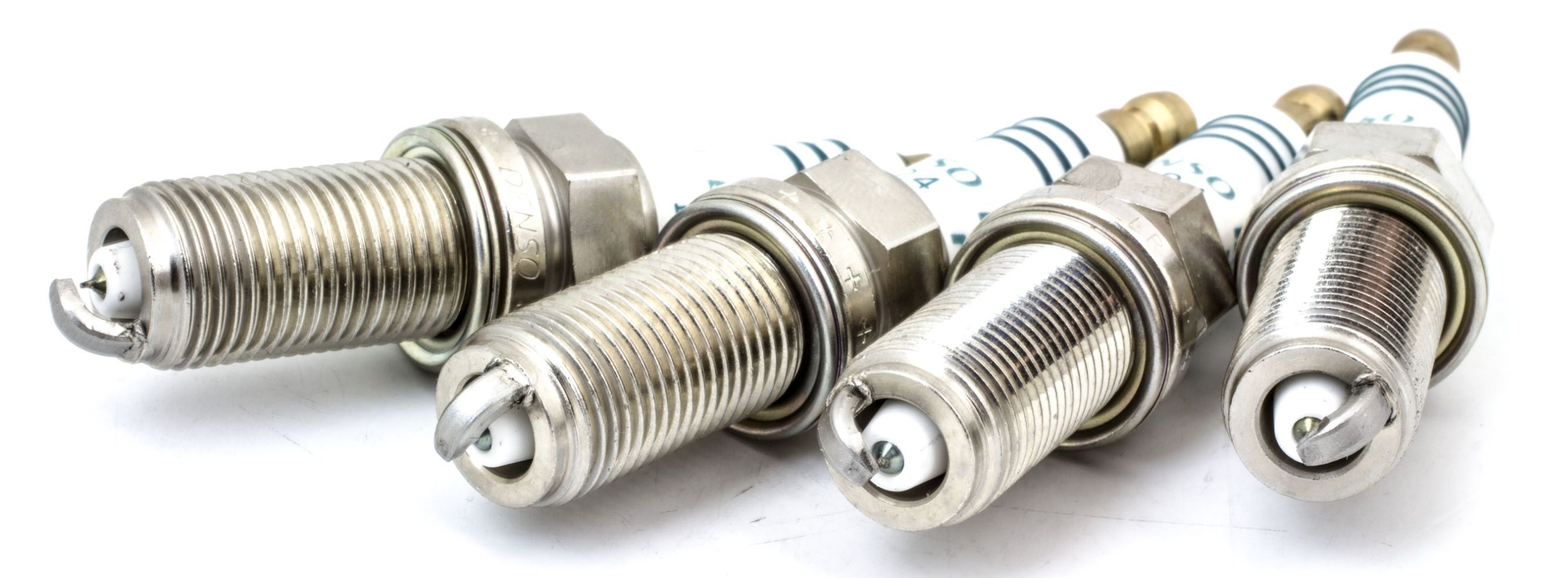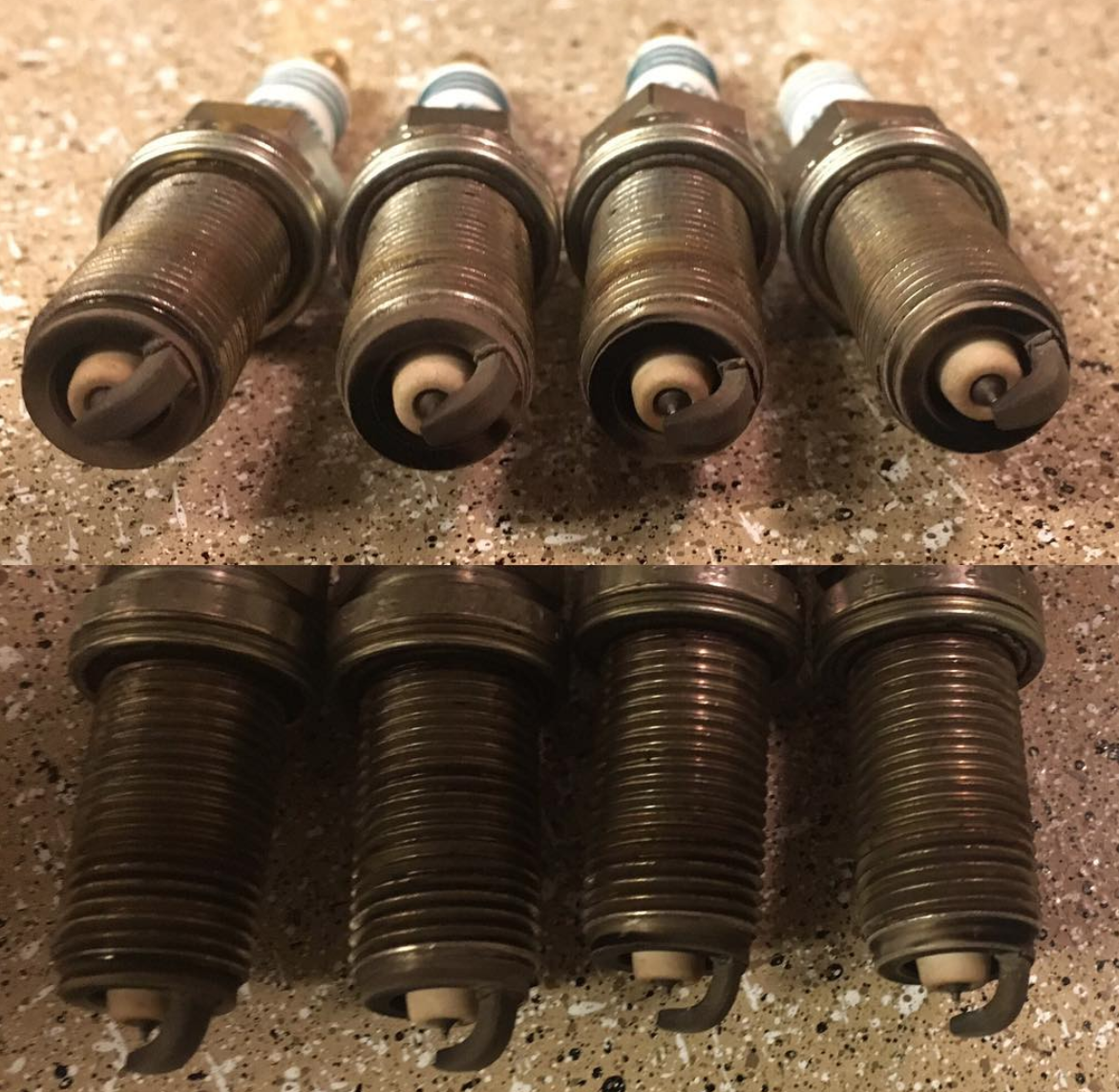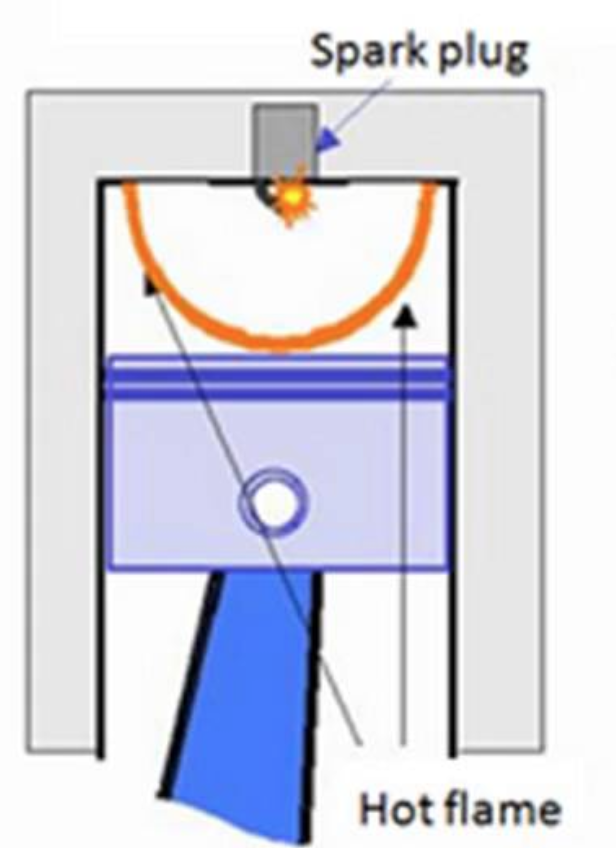The Great Spark Plug Debate


If you’re new to the Mk7 community, you there's a topic that seems to be way more popular than it should be: spark plugs. Historically speaking, spark plugs have been a way to “debug” potential issues with a car. For instance, you could look at a spark plug to see if a car has been running too rich or too lean of a fuel mixture. You could look at a spark plug to see if a car is burning oil. However, in many Mk7 forums, there seems to be a new belief that these are some type of performance oriented feature which must be carefully considered. So… why is it different for Mk7’s? What makes us so special?
Firstly, most people today aren’t well versed in reading spark plugs anymore because quite frankly, it isn’t often necessary. We are far beyond the use of carburetors and the Mk7 is equipped with a closed-loop ECU, which can make precision adjustments to fueling in real-time. While some owners with exotic tunes or other issues may still need to use plugs to diagnose fueling issues, this is certainly few and far between where it used to be common place. As for oil burning, hopefully now one is having those issues yet!

- A healthy set of Denso IKH24 Plugs after 10K miles.
Spark Plug Basics
So then why are spark plugs such a hot topic? Firstly, let’s go through what a spark plug's job is. The goal of a spark plug is to start the ignition of the air-fuel mixture inside the cylinder. The more precise and consistent the spark, the better it can be optimally timed. This is referred to as the spark plugs “electrical performance”. A plug with high electrical performance results in optimal power. However, notice that the word choice of optimal, not more. A good spark plug maintains power, a bad spark plug removes power. So then any plug should work the same right?
Well, there’s a secondary component known as “thermal performance”. When we talk about spark plug heat ranges, we’re referring to this aspect of the spark plug. Just like engine oil, there’s an optimal operating temperature for your spark plug. Colder spark plugs are designed to remain cooler in harsher conditions, whereas hotter plugs are designed to remain warmer in low-load conditions. So if you’re building a race car that’s going to spend all of its time above 4000 RPM, you probably want a very cold spark plug. If you’re building an econo-box, you’d want a hotter spark plug. Of course this is just the basics, but it's enough for our scope.

Finally, there’s one last thing to consider. Engine knock (pinging) and pre-ignition, which for the scope of this discussion we’ll lump them together. In the ideal scenario, the spark plug ignites the air-fuel mixture, creating a single "flame front" in the cylinder. The problem occurs when an additional flame front is created, not just the one by the spark plug. As you can imagine, these two forces interfere with each other causing vibrations, which often sound like a metallic pinging. Mk7s are equipped with knock sensors which can detect knock issues such as the one described (and others that aren’t for today’s discussion). The knock sensors feed this information to the ECU, which adapts the spark plug timing such that the spark plug can once again become the sole source of ignition.
The problem with this scenario is that there’s some element of time between when your engine starts knocking and when the actual corrections take place. In extreme cases, the corrections can be continual. These vibrations cause excessive wear on engine components, including spark plugs. Can you see the issue yet?
Choosing the Right Plug
Now let’s get back to the high level. Consider that a spark plugs has several design points. How robust it is in the event of engine knock. How long it lasts. It’s optimal operating temperature. How much it costs to produce. All of these features can kind of be thought of trade-offs between different spark plugs out there for your car. VW engineers looked at the Mk7 and decided that the factory plugs are the best option for your Mk7 due these trade-offs. And it turns out, they knew what they were doing. For 99% of users, we highly recommend the use of factory spark plugs as they work great for stock cars, as well as moderately tuned cars (Stage 1 and 2).
Similarly, the RS7 plugs was chosen with different trade-offs in mind for a different car. The most notable difference is the 1-step-colder heat range (recall more performance oriented). Because of their similarities, this makes them a popular choice for a spark plug “upgrade”. Despite the popularity of these plugs, issues have been seen of spark plug failure when used in more highly tuned cars. These issues seem to be isolated to the older Beru version of the RS7 plug. Since then, the RS7 plug has been updated to an NGK version. These are still in no way a racing spark plug, and likewise, should not be used in heavily modified setups.
Audi RS7 Spark Plugs (updated NGK version, 1 step colder)
Lastly, there are a few popular non-OEM options which are gaining both popularity and criticism: Brisk ER12S, Brisk ER14S, Denso IKH24 and even NGK Racing plugs. In the early days of the Mk7 community, the IKH24 were all the rage, but due to a few scares many have abandoned the tried-and-true performance spark plug. The IKH24 offers a different set of trades-offs: still low cost, a different operating temperature making it more suited to performance applications, but a shorter service life. In fact, if you chose to run Denso IKH24 I personally would recommend a 10-12K service interval. While there’s no way to know all the issues, but it’s likely that many Denso IKH24 failures were due to lack of adequate service. A primary reason for this is every time you commute casually to work with your racing spark plugs, you’re likely not reaching a high enough temperature and causing excessive wear. Additionally, note that with any non-OEM spark plug, it is a good idea to get a feeler gauge and spark plug gapping to verify the correct spark plug gap (.024").
Denso IKH24 (2 steps colder)
NGK Racing Plugs (2 steps colder)
This brings me to my final point: service life. There’s one thing that I’ll note about Mk7’s which is that they seem to eat spark plugs pretty quick, especially when tuned. Around 20K miles, many owners will start to complain about a rough idle. While these cars typically maintain good drivability otherwise, the rough idle seems to be traced back to spark plugs. If this bothers you, replace the spark plugs! It’s a cheap and easy fix likely to smooth out your idle. And remember, if you suspect an issue, check it out! Spark plugs can easily be pulled periodically, and assessed just like the old days. If you pull it out and all looks well, great! If not, it should at least help get you in the right direction of diagnosing your car.
TL;DR:
- Factory spark plugs are great for 99% of VW’s out there.
- Audi RS7 plugs are basically just a 1-step colder plug (slightly more performance oriented plug), but in no way a race plug.
- Aftermarket spark plug options are good for people pushing their cars harder on a regular basis. They typically will have a much shorter service life.
- If you suspect an issue, check it out!
Some other great info on spark plugs:












Comments